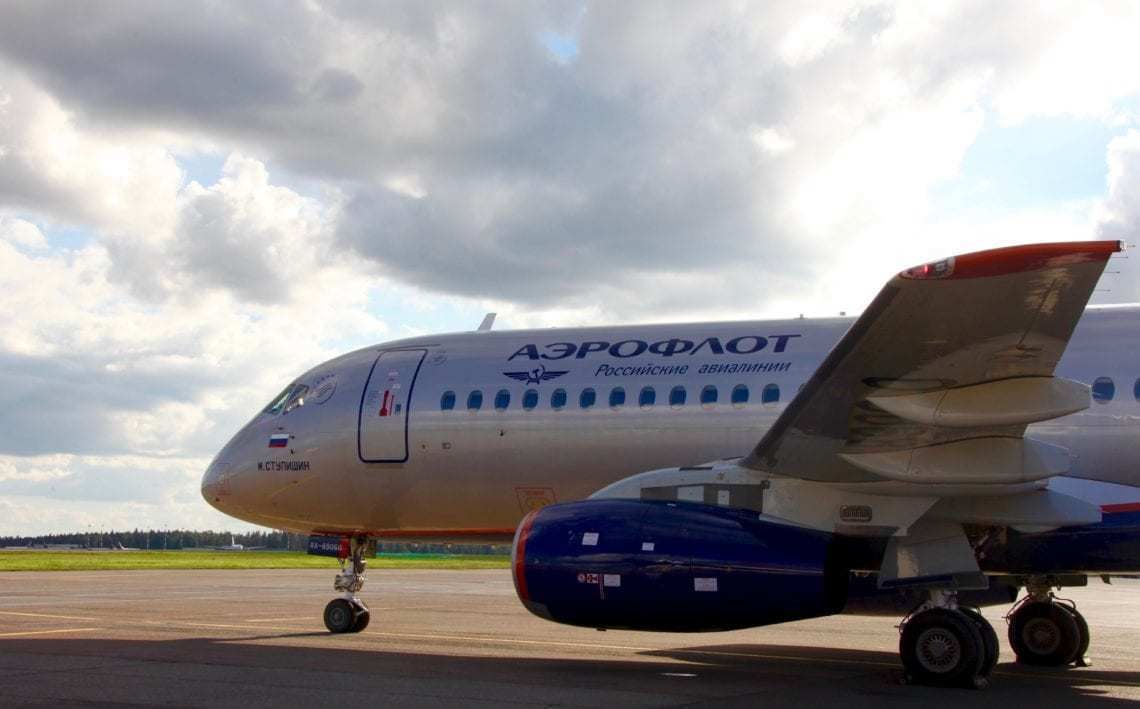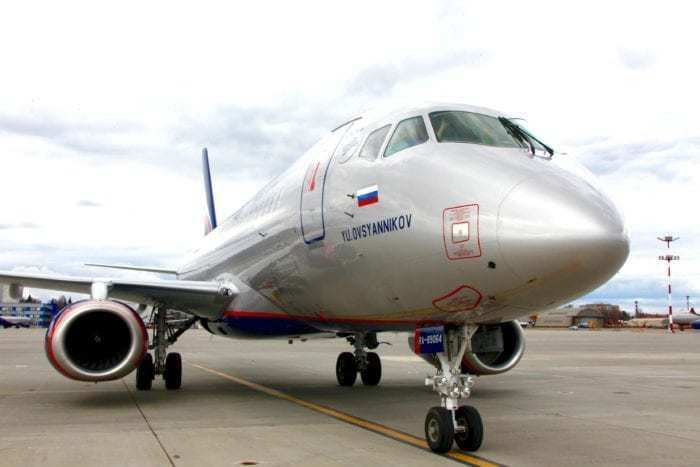The response of emergency rescue crews to the Aeroflot crash last week has come under scrutiny, after the aircraft sat burning for two minutes before help arrived. However, the operators of the Moscow Sheremetyevo Airport say that responses were all within allocated time limits.
Slow response of emergency teams
When we originally reported on the Aeroflot disaster, we noted that the video of the incoming plane showed no fire crew in attendance. Our reporter Tom Boon said,
“Given that the aircraft was squawking 7700 prior to landing, one would assume that the fire crew would already have been en route to respond in a ‘just in case’ capacity… the footage shows that at least 60 seconds after the aircraft came to a halt, the fire service was still not in attendance.â€
We were not alone in our assessment of the situation, as numerous Russian officials have called for an investigation into why the emergency services were not waiting for the plane upon landing.
The Express reports that a passenger in the terminal also thought there was a delay in the response of emergency services. Eyewitness Vera Kochneva is quoted as saying:
“We were sitting at the airport when black smoke started coming from the runway. But there were no emergency personnel there. Technical staff were filming all with phones, there were no firefighters. About five minutes later, the show began. Equipment, firefighters got to work…
“The question is why did the emergency services not get the equipment in time knowing that the plane is landing in fire?â€
Why indeed? But according to the airport, their response was in plenty of time.
How quickly did emergency services respond?
According to the airport operator, firefighters arrived at the burning plane within the regulatory standard, in fact a minute quicker than the minimum. Flight Global reports that emergency services arrived two minutes after the aircraft landed; the Russian regulations stand at three minutes.
In detail, the airport has said that two fire engines arrived within two minutes of the aircraft touching down. Around a minute later, four more rescue vehicles arrived. Altogether 26 rescuers attended the emergency, and it is reported that the fire was extinguished within 18 minutes.
Additional reporting by Crime Russia suggests that the airport actually turned down an offer of an additional fire tender to attend the scene. According to a transcript of conversations, one fire engine was sent out to the plane, with the firefighters reporting:
“I observe thick black smoke and flames. Call for additional forces of the garrison and an ambulance,â€Â
During further conversations, the question of sending additional vehicles was raised a further two times. However, the answer was that the team was not needed.
To observers, despite the rescue crews attending within the required time, it seems odd that they weren’t ready and waiting when they knew the aircraft was making an emergency landing. In other nations, having fire and ambulance crews at the end of the runway as a precaution is standard for any emergency landing.
Alexander Zhuravkov, head of the committee for emergency situations of Russian airport industry association Aeroport, told Reuters that,
"The question, though, is why the alert was raised after the landing, and not before, in a timely fashion, since there was an expected landing underway of an aircraft with an emergency situation on board,"
Both the airport and Aeroflot have declined to comment.
The aftermath of the crash
The Sukhoi Superjet 100 crashed in Moscow on Sunday 5th May. 73 passengers and five crew members were on board. 41 of them died, with speculation that passengers stopping to retrieve baggage could be added to the fatalities.
Aeroflot are trying to do the right thing, saying that families of the victims will receive compensation of $76,600 each. Russian news agency TASS reports that the airline has said:
"A sum of one million rubles ($15,320) will be paid to each of the SU1492 passengers who needed no hospitalizations. Two million rubles ($30,640) will be paid to each of those hospitalized after the May 5 accident. Families of those killed in the crash will receive five million rubles ($76,600) each,"
Russia has opened a criminal case regarding the flight and are investigating the cause of the accident in depth. Several theories exist, including pilot error, technical malfunctions and inclement weather conditions, but it’s likely to be many months before anyone gets any answers.


